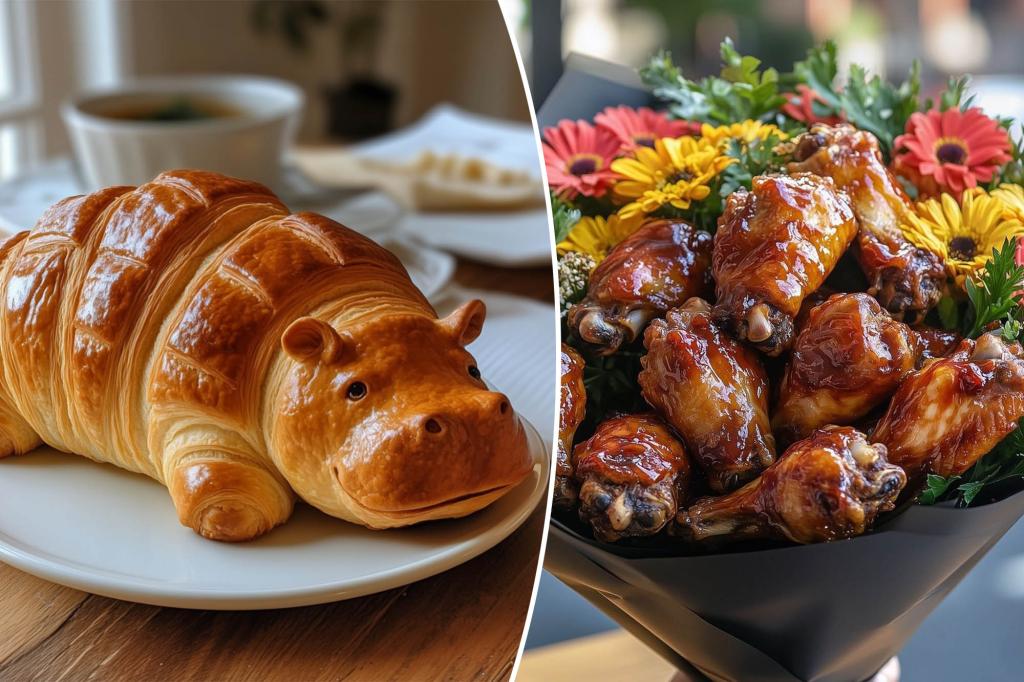The social media of a non-existent Austin, Texas eatery called Ethos features images of aesthetically pleasing and visually appealing dishes that are actually cooked up by artificial intelligence. The restaurant boasts nearly 75,000 followers online but no physical location. The food at Ethos, such as a pizza with Pikachu’s face and dinosaur-shaped croissants, is part of a joke that not everyone seems to be in on. Many potential customers try to find the location of the restaurant, attempt to make reservations, and express a desire to visit the establishment, even though it doesn’t exist. Some users question whether Ethos is real or not after failing to make reservations.
Ethos’ unknown creator is making income from the fake establishment by selling branded merchandise, such as t-shirts, hats, and other apparel. The company quickly turned a recent news article about the phony restaurant into a meme on its merchandise. The reasons behind creating this imitation restaurant are unclear, as Ethos did not provide a clear response when questioned by the media. The company vaguely stated that their vision is to establish a unique dining experience that celebrates culinary traditions. Ethos declined to comment further on their origins, directing media inquiries to a requisition form and refusing to provide any substantial information about the purpose behind their actions.
While AI-generated images of food like those created by Ethos may look more appealing than real photos, there is concern that they could create unrealistic expectations about how natural foods should look and potentially harm sustainability efforts by promoting only visually perfect produce. The Food Institute and the Texas Restaurant Association have raised concerns about the possible misuse of AI in creating images of food for marketing and promotional purposes. Ethos’ use of AI to create visually striking food images has garnered attention and sparked discussions about the impact of these artificial images on consumer perceptions and expectations.
Ethos is not the first fake fine dining experience that has attracted attention. In the past, similar stunts have been pulled off, such as turning a shed into a dining phenomenon on TripAdvisor with staged photos and fake reviews, or tricking over 100 New Yorkers into believing they had secured a table at a historic steakhouse. The fake restaurant trend appears to be an emerging form of entertainment that relies on social media, AI-generated images, and clever marketing tactics to fool unsuspecting customers. This new wave of fake restaurants raises questions about the ethics of using AI to create fake food images and the potential impact on consumer behavior and expectations.
Overall, Ethos is a fictional restaurant that has gained a following on social media through visually appealing food images created by artificial intelligence. Despite not having a physical location or serving actual dishes, Ethos has attracted attention from potential customers and the media. The company behind Ethos is making money by selling branded merchandise, but their motives for creating the fake restaurant remain unclear. The use of AI-generated food images by Ethos has sparked debate about the impact on consumer perceptions and sustainability efforts. The emergence of fake dining experiences like Ethos highlights a growing trend of using social media, AI technology, and marketing strategies to create elaborate hoaxes that blur the lines between reality and fiction.


